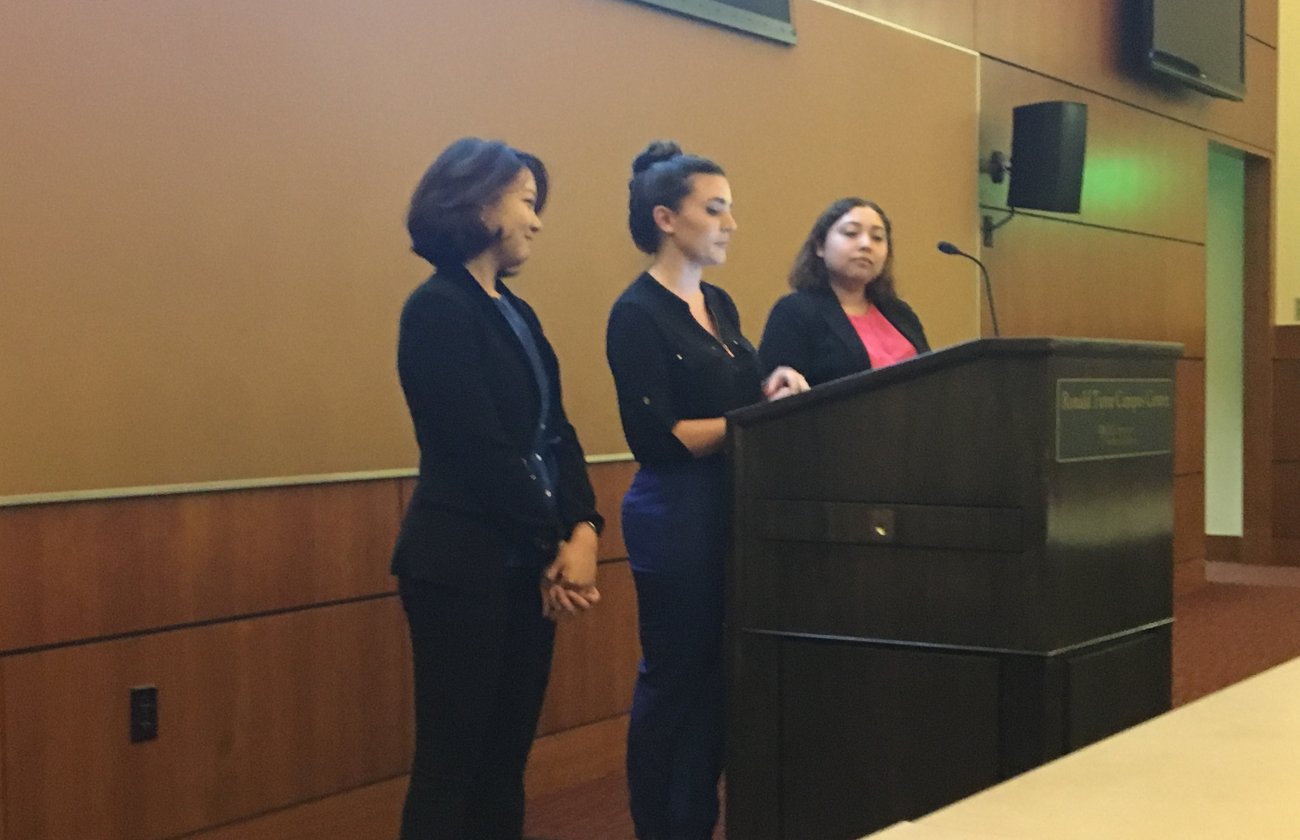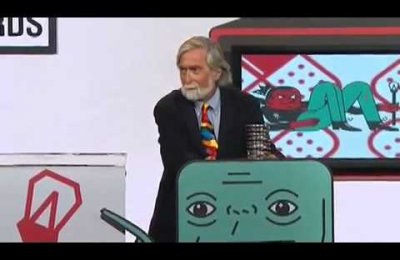The Webby Awards named Truthdig, a website co-founded by communication professor Robert Scheer and alumna Zuade Kaufman (M.A. Print Journalism '05), the best political blog for the second consecutive year.
Truthdig's competition consisted of four widely read sites: The New Yorker's “Close Read," Comedy Central’s "Indecision," TheAtlantic.com's "Politics" and The Huffington Post.
"We're taking the standards of old media and applying them to the Internet," Scheer said. "We have traditional standards of fairness, accuracy and fact-checking. That's unusual for the Internet, where most people are flying by the seat of their pants."
Besides Scheer (editor in chief) and Kaufman (publisher), USC Annenberg contributors to the Truthdig team include: managing editor Peter Scheer (B.A. Communication '04); associate editor Kasia Anderson (Ph.D. candidate); editorial assistant John Cheney-Lippold (Ph.D. Communication '11); contributor Joshua Scheer (B.A. Communication '03); web designer/developer Kassandra Zuanich (B.A. Communication '09); contributor Larry Gross (School of Communication director); contributor Marc Cooper (journalism professor); contributor Sandy Tolan (journalism professor); contributor Jon Dillingham (Master's in Specialized Journalism '11).
The many USC Annenberg contributors have helped guide Truthdig to four Webby Awards since 2007.
"I think it speaks to the quality of our product," Kaufman said about Truthdig's multiple Webby Awards. "The judges have recognized the importance of the journalism we do. We’re serious in our approach to journalism and about keeping an independent voice."
Gross, who writes a Truthdig media column titled "Larry's List," is one of four USC Annenberg faculty members who regularly contribute.
"Truthdig is a model of creative entrepreneurship, demonstrating that standards and ethics need not be sacrificed in the search for new vehicles for the gathering and delivery of news and opinion in the digital age," Gross said.
Dillingham, who came to USC Annenberg after spending five years at a newspaper in Vietnam, said editorial neutrality is what sets Truthdig apart from other news organizations.
"The editors have really trusted me to write about topics I find interesting," he said. "The journalism model at Truthdig is working. There are great people and great journalists here."
Robert Scheer said Truthdig gives its writers the opportunity to be independent. He pointed to a time earlier this year when columnist Chris Hedges wrote an article criticizing Arianna Huffington for selling her Huffington Post. Scheer then wrote his own column in which he said Hedges "missed the point."
"Our model of journalism is what I like to call a 'condominium model,'" Robert Scheer said. "If we decide to hire somebody like Chris Hedges or Bill Boyarsky or Marc Cooper, we let them decorate their condominium however they want. We're not going to let them be libelous or homophobic or racist — there are limits — but within those restraints we're not going to tell them their opinions are wrong."
Cheney-Lippold, who will soon move to the Midwest to become a professor at the University of Michigan, said his three years at Truthdig have given him the opportunity to have his writings be read by many thousands of people when he feels strongly about a topic.
"I really like the freedom that Truthdig offers," he said. "When SB-1070 came up in Arizona, which I was vehemently opposed to, I wrote about it for Truthdig and had my voice heard."
The Webby Awards, hailed as the "Oscars of the Internet" by the New York Times, are the leading international honor for excellence on the Internet, including websites, interactive advertising, online film and video, and mobile sites. Winners will be honored at the 15th-annual Webby Gala at Hammerstein Ballroom in New York on June 13.
"This year's Webby Winners exemplify the type of profound effect the Internet is having on popular culture and the world at large," said David-Michel Davies, Executive Director of the Webby Awards. "From Arcade Fire's reinvention of the music video format with The Wilderness Downtown, or the New York Times coverage of revolution in Egypt and the Middle East, the Internet is the driving force of change in the world today."








